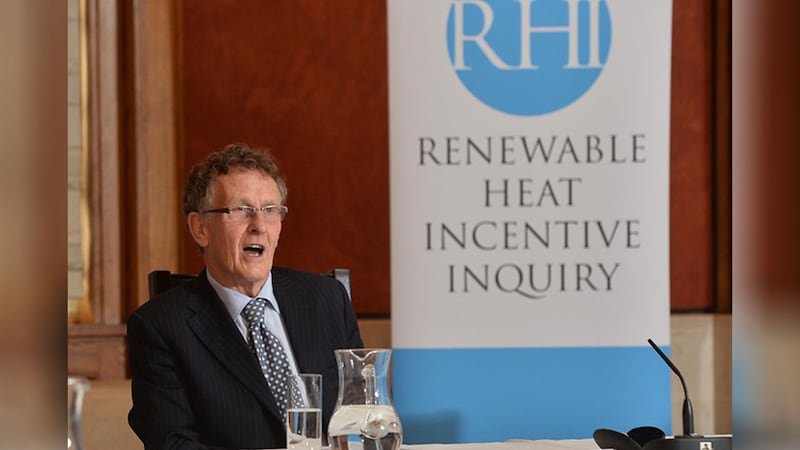The Renewable Heat Incentive (RHI) public inquiry has already served 125 notices demanding documents and information to find other files, according to chairman of the probe Sir Patrick Coghlin.
The retired judge appealed to anyone who thinks they may have information that would help the inquiry to come forward.
Sir Patrick said he will insist upon complete independence, as he outlined how he will gather evidence at a hearing at the Long Gallery of Parliament Buildings.
However, setting a time limit on the inquiry would not be helpful, he said.
The RHI inquiry was set up by former Sinn Féin finance minister Máirtín Ó Muilleoir, who said it would be appropriate for it to report within six months.
However, Sir Patrick warned that this would not be realistic and said he would be unable to indicate how long the inquiry might take.
The inquiry is using office space in Waterfront plaza, Belfast, while the senate chamber at Stormont will be used for oral hearings
He will investigate accountability for failings in scheme "where ever that may lie," Sir Patrick said, adding that the inquiry was not responsible for investigating individual applications under the scheme.It may do so in some cases if necessary, he added.
All witnesses will be questioned on oath or affirmation.
The inquiry is expected to cost more than £4 million this year, according to draft budget proposals published by Secretary of State James Brokenshire.
Mr Brokenshire has said he will implement the draft budget if parties cannot agree a deal to restore devolution by the deadline of June 29.
In the breakdown of the figures, £4.3m is to be set aside for the RHI inquiry this financial year.
The RHI inquiry was set up after it emerged the ill-fated green energy scheme had left the Stormont executive facing a potential overspend bill of £490 million.
Former DUP first minister Arlene Foster established the scheme in 2012 when she was enterprise minister.
Flaws in its design meant recipients were able to earn more in state subsidies than it actually cost to run their eco-boilers.
When the "cash for ash" crisis flared during the winter, the late former Sinn Féin deputy first minister Martin McGuinness asked Mrs Foster to stand aside.
When she refused, he resigned and collapsed Stormont's power-sharing institutions.
A new coalition government has still not been formed two months on from the subsequent snap Assembly election in March.








